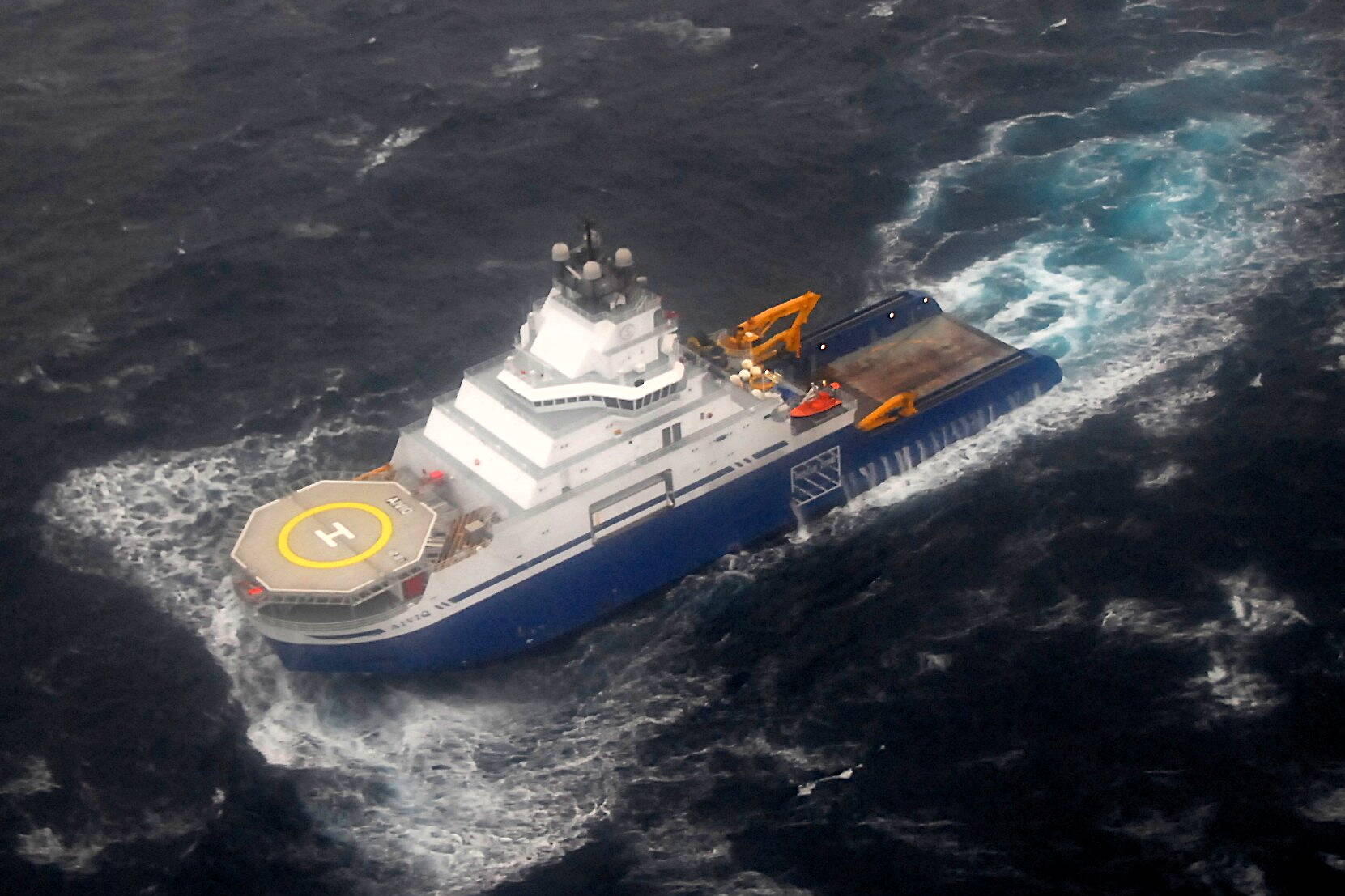This article has been updated to include additional information.
A late change in the Senate to the $1.7 trillion omnibus spending package passed by Congress axed funding to purchase a privately owned icebreaker that had a preferred home port of Juneau.
A $150 million authorization for the vessel to be purchased by the U.S. Coast Guard was removed from the bill that both avoids a government shutdown and provides significant aid to Ukraine.
The removal of funding is disappointing, both of Alaska’s Republican senators said.
“It’s very frustrating to all of us,” said U.S. Sen. Lisa Murkowski during a news conference Friday afternoon.
Josh Wilson, interim communications director for Rep. Mary Peltola, a Democrat, said Peltola echoes those sentiments.
“Representative Peltola joins Senator Murkowski and Senator Sullivan in being extremely disappointed in the removal of the Icebreaker funding,” Wilson said. “We haven’t gotten a clear answer on why that happened yet.”
Murkowski described the cut as a “temporary setback” and said she will continue to push for its advancement in the future. She did express her concerns that the 10-year-old Aiviq icebreaker, which has been eyed by lawmakers, could be purchased by another entity and the recent move to cut the funding opens the doors to that possibility.
U.S. Sen. Dan Sullivan, who voted against the omnibus bill, cited the sudden removal of funding among the reasons he objected to a bill. In a prepared statement released Thursday, Sullivan stated the package was approved without sufficient time for lawmakers to analyze the bill.
“This was a priority for the Alaska delegation,” he stated. “In the final hours of this opaque omnibus process, these funds were removed. By whom and for what reason, is not clear. This decision could further set back our nation’s ability to provide a persistent presence in the Arctic for years. This is a major disappointment for our state and country.”
According to an explanatory statement submitted by Sen. Patrick Leahy, a Vermont Democrat who chairs the Senate Committee on Appropriations, the committee was concerned with the potential cost to convert the icebreaker for Coast Guard operations and a search for a commercially available icebreaker will be expanded to include foreign countries. Previously, finding a U.S. built ship was prioritized.
The Coast Guard has been asked to brief the committee on an updated procurement plan in the future.
According to City and Borough of Juneau City Manager Rorie Watt, the funding cut does not change any of the city’s plans or decision-making in preparation for the icebreaker. He said the city will continue to prepare for the next opportunity.
“I don’t think it affects anything at all,” Watt said. “It is Congress — Congress is complicated and until something is a done deal, we should make sure the next time there’s an opportunity where we don’t shoot ourselves in the foot.”
It has been a long-standing desire for Alaska to homeport an icebreaker, with proposals to purchase the Aiviq icebreaker dating back to 2015, most notably advocated for by former U.S. Rep. Don Young, who died in March. The procurement of the icebreaker has been seen as controversial, in part due to leaders from the Coast Guard having stated in the past that the Aiviq is “not suitable for military service without substantial refit.”
Though the bill cut funding for the icebreaker, more than 130 Alaska community projects totalling nearly $500 million were included, containing multiple Juneau-based projects.
■ $2.5 was allocated to CBJ to design and construct a commercial-scale compost facility. According to Watt, the process to get the facility up and running in Juneau will likely be “long and complicated” and will require multiple Assembly actions. He said he hopes it becomes a catalyst for further waste diversionary projects.
■ $870,000 was allocated to renovate and expand the Juneau Alliance for Mental Health, Inc. Health and Wellness specialty behavioral health facility.
■ $750,00 was allocated to establish and operate a commercial driver’s license education training program at Juneau’s University of Alaska Southeast.
“We all recognize that one of the challenges with our workforce right now is we don’t have enough people to drive buses, to drive trucks and heavy equipment,” Murkowski said. She said the use of the funding for the program will be determined by UAS.
• Contact reporter Clarise Larson at clarise.larson@juneauempire.com or (651)-528-1807. Follow her on Twitter at @clariselarson.

